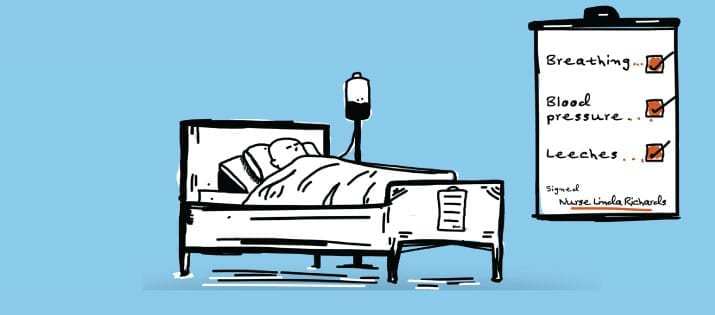We’re looking at the people who changed the way that we use and view information. Today information percolates our entire lives, it changes the way we do business, improves our health and powers our decisions. So it’s only right that we celebrate the heroes that got us here.
150 years ago, the way that we treat and care for patients changed drastically. In a little-known event, America’s first professionally-trained nurse, Linda Richards, marked down and recorded the individual medical heath records of patients for the first time. Linda inherently understood the importance of recording the details of the care that a patient had received, and needed to receive. She saw the enormous value of that information; not just to that person’s wellbeing but for the development of the entire organisation.
And should this really be a surprise? After all, you can only comprehend the requirements of a healthcare organisation by really understanding the needs and experiences of the individuals that use its services.
The same is true in the business world. No business can realistically hope to improve or learn from the experiences of its customers without ensuring that its data is analysed and flows all the way to the top. This is especially important in today’s information age where, according to the research company IDC, the total amount of information worldwide will reach 35,000 exabytes in 2020. Businesses currently use approximately 1,200 exabytes, which means information processing must increase at least 29-fold over the next decade. Moreover, understanding this information is also crucial; a 2014 study by Ventana Research found that 69 per cent of global financial professionals believe that data analytics will have the biggest effect on the success of their business by enabling them to shape their strategies around their customers’ needs.
The importance of rigorous information sharing and management to the general health of an organisation is now firmly established. After all, without a strong data infrastructure it is difficult to achieve confidence in the data being delivered. The actions of Linda Richards first gave credence to this – albeit on a very small scale.
Every organisation, whether in healthcare or the wider business world, has to contend with an ever-growing tide of information and data. For consumer-facing brands especially, the information about their customers is as invaluable as the medical records of a hospital’s patients – they are a blueprint on which the company’s strategy is built.
Of course, Linda could never have predicted the advent of big data, or the abundance of technology solutions at our fingertips to dissect, analyse and categorise it at individual, company or even country-wide levels. However, she recognised the significance of chronicling data for future use, and this is why she was a true information hero.
Blog originally from Canon Business Bytes



